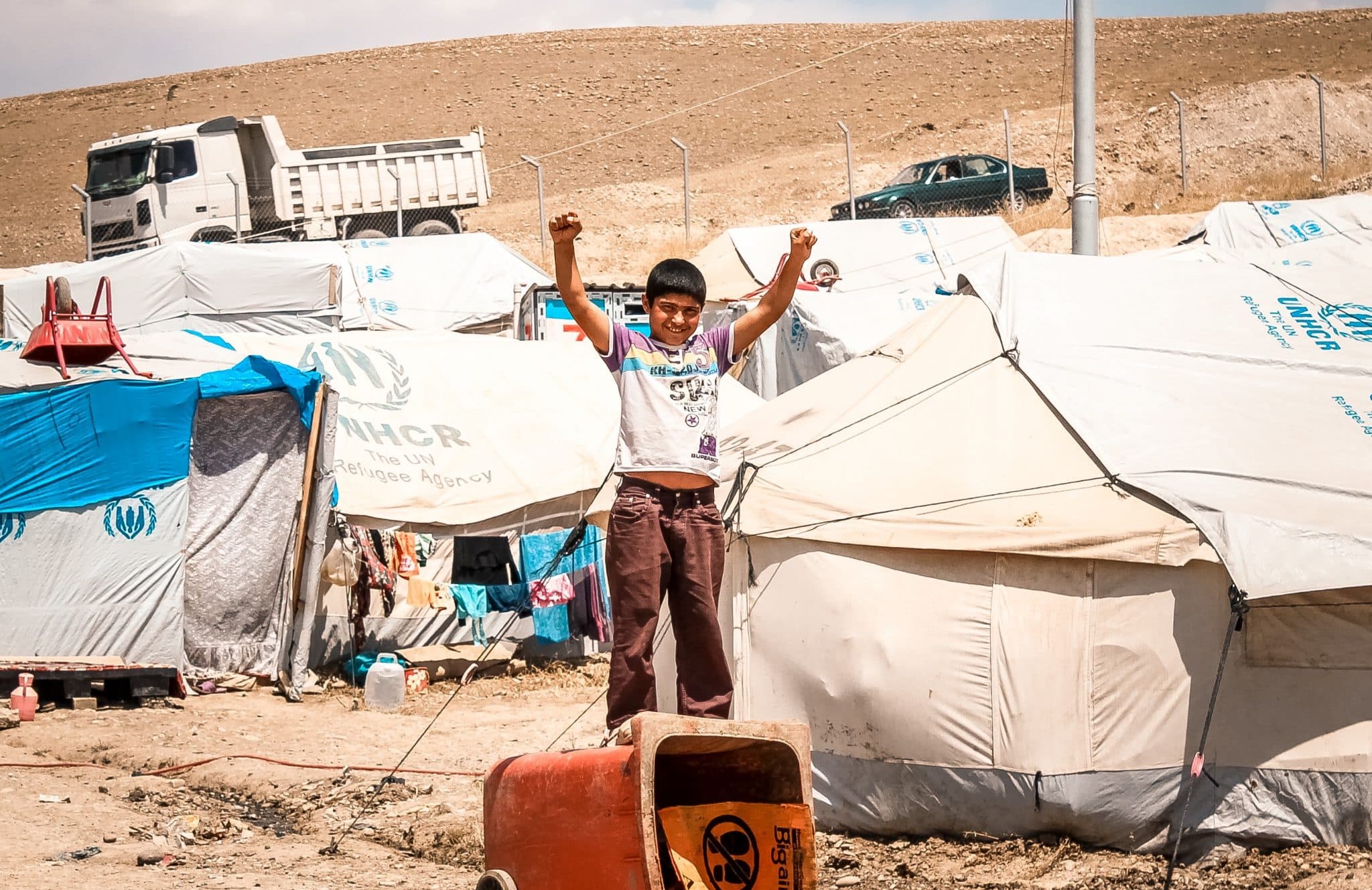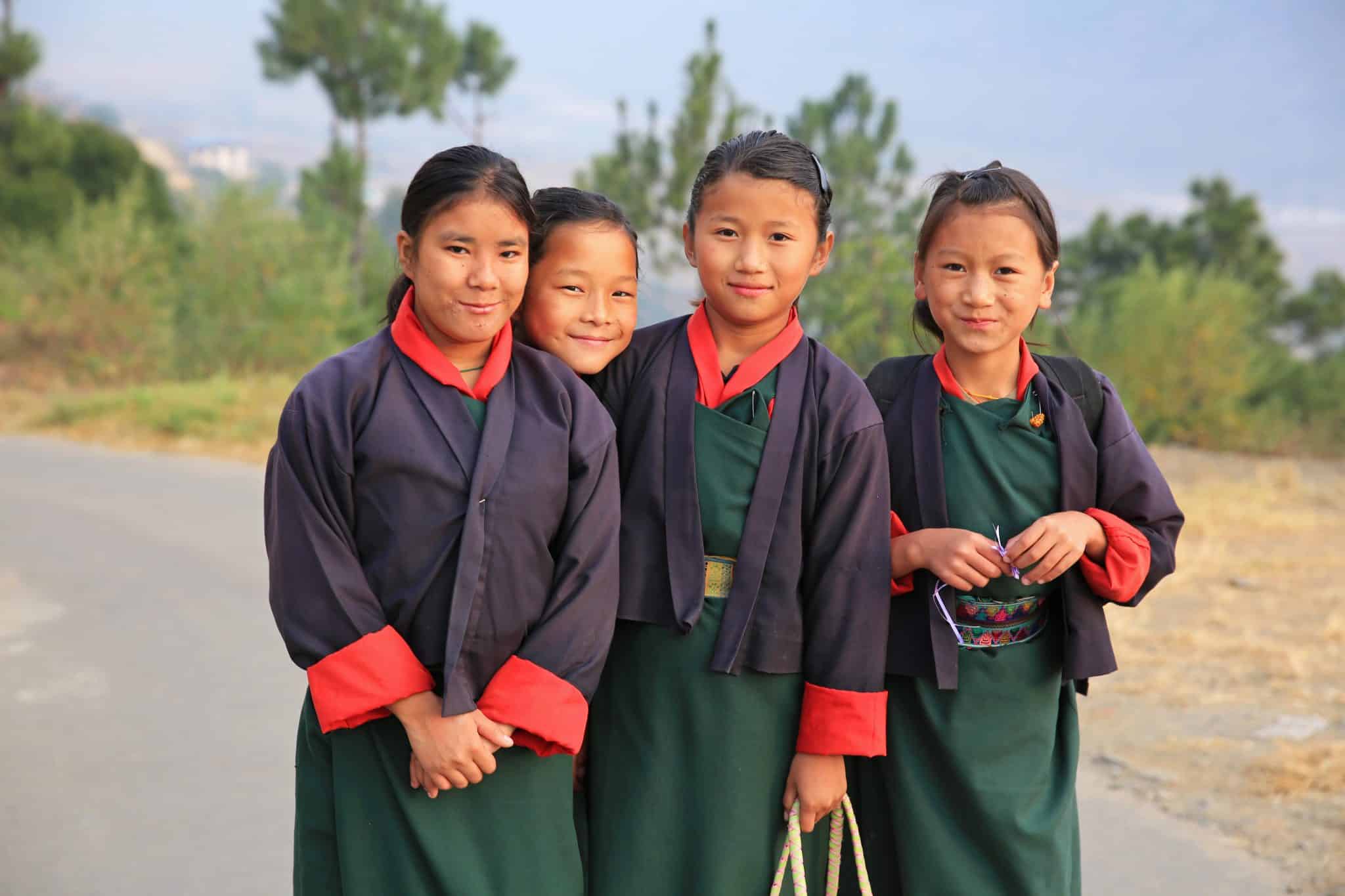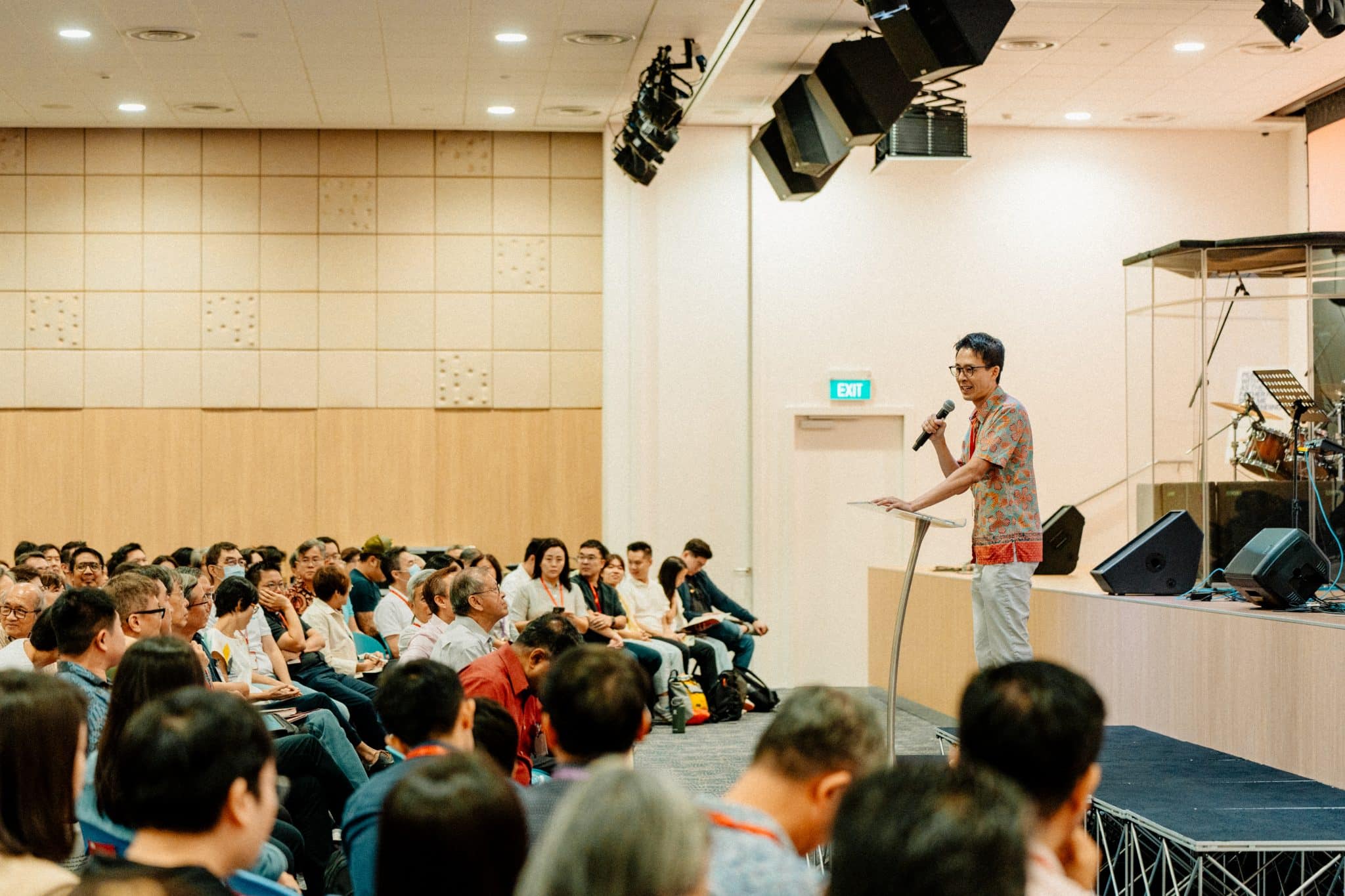What we have in common with 117 million displaced people in the world today
Today, on World Refugee Day (June 20), Salt&Light remembers the plight of millions of people forced to flee their homes due to disaster and war. The UN estimates that 41% are below 18.
Pastor Ng Zhi-wen // June 20, 2023, 4:42 pm

The story of being abandoned, displaced and rescued by God and given a new identity in Him is also our story as the Church, says Pastor Ng Zhi-wen. “Once you were not a people, but now you are the people of God” (1 Peter 2:10). Photo by Jonathan Ramalho on Unsplash.
I vividly remember sitting in a café in Paya Lebar Quarter mall with a group of Singaporeans dedicated to serving refugees.
Just two weeks prior, a larger group had met over dinner to share about their heart for refugees. Then, in mid-2021, I witnessed the commissioning of a few Singaporeans who were going forth to serve refugees in West Asia.
I’d never thought such a thing would happen – that God would raise people for refugee work from here in Singapore. But perhaps my marvelling at this is due to my lack of appreciation for history: One of the earliest missionaries sent out from the Singapore church (in 1965) went to minister to refugees in Hong Kong. And in 2018, there was even a conference on refugees.
The Lord has been “onto this” for way longer than I know.
The refugee story within the Bible
Once you’ve gotten involved in refugee work, it’s hard to miss the frequent references to forced displacement that is in Scripture. They had been lying there in plain sight, but I had not the eyes to see that the plight of refugees had been woven into the big story of God’s.
God’s Word through Ezekiel dramatically depicted Israel as an abandoned child of alien origins, with no one to pity her.
Allow me to sketch some of this out:
Every plight of the refugee can be traced back to sin. The first forced displacement took place in the Garden of Eden that Adam and Eve were forced out of because of their disobedience.
More to the point, we think of how God’s people were rescued through the Exodus – from a forced displacement and in a state of slavery – and settled in the Promised land as a liberated people.
In the process, they gained an identity as a people liberated by God and they received an inheritance of the promised land. Given such a salvation history, notice how God’s people were taught to likewise show compassion to others like them: “Remember the strangers and sojourners because you were once like them.” (Leviticus 19:33-34)
God’s people ought to relate well to those who have been dispossessed and who have no government to look after their welfare, and no sense of nationhood to help define who they are.
In the song of Moses, Israel was described as being found by God lying wasted in the wilderness; God took her under His wing and cared for her (Deuteronomy 32:10-14).
God’s Word through the prophet Ezekiel dramatically depicted Israel as an abandoned child of alien origins, with no one to pity her. God was the one who took her in and helped her flourish (Ezekiel 16:1-14).
Something relatable
These experiences of abandonment are mirrored by the experiences that refugees today face. We of all people should know what it is like to be a refugee!
Given such a salvation history, notice how God’s people were taught to likewise show compassion to other displaced people.
Put another way, living and working with refugees allows us a special appreciation (as the Church) of being once abandoned and uncared for but now taken under God’s wing.
God has become our refuge (Psalm 14:6, 46:1; 62:7).
This also is the picture describing Jesus’ mission: Remember that the Old Testament Church was forced into captivity (exile) because of her sin and by the agency of foreign powers. That condition of being “far from home” did not end when the Israelites returned from captivity in Persia. The sense of abiding exile persisted all the way to the time of Jesus’ coming. Jesus came to lead them out of exile.
To accomplish this, Jesus lived as a refugee too. Shortly after he was born, Joseph and Mary took Jesus and fled to Egypt to escape the murderous political machinations of King Herod (Matthew 12:15).
Jesus’ family became political refugees in Egypt. It was all of a piece to describe Jesus’ “second Exodus” ministry: “out of Egypt I called my Son” (Matthew 2:15; Hosea 11:1).
Recognising our story as the people of God
We are the New Testament Church, and this story of being rescued by God and given a new identity in Him is also our story: “Once you were not a people, but now you are the people of God” (1 Peter 2:10).
This story of being rescued by God and given a new identity in Him is also our story.
Like Abraham, we too live as strangers in a foreign land, looking ahead to our true eternal home that God has promised for us (Hebrews 11:8-10). We have so much by which we may identify with the over 100 million displaced peoples of the world.
Furthermore, we are invited to walk in the footsteps of God as we approach working among refugees. We enter their world and practice showing kindness and hospitality – a holistic and godly form of refuge-giving – for a people who have been traumatised by war, violence and poverty.
If they have arrived on our shores, we should not turn them away but show compassion to them just as ancient Israel was called to care for the sojourner and the foreigner.
In the present era of global missions, we are sent out as the Spirit leads us.
And – should we find ourselves among the community of the displaced – then may God’s compassion lead us to enter their world the way Jesus entered ours.
Insofar as people become refugees because of enmity between different peoples, we practise the ministry of peace-making and reconciliation that is made possible only in Christ, in every way bringing the light, healing and hope of God, that the refugee may find refuge in Him.
How you can support struggling refugees today
June 20 marks World Refugee Day, an international day designated by the United Nations.
There have been sharp increases in hunger and violence against children of refugees and internally displaced families, said the latest World Refugee Day report by World Vision. The numbers are significant even against 2021 data at the height of the Covid-19 pandemic.
Below is a non-exhaustive list of crisis hotspots around the world to pray for and support. Click the links to read more about the plight of the refugees in each country and how you can support them:
- Afghanistan
- Myanmar conflict and Cyclone Mocha
- Syria conflict
- Turkey earthquake
- Ukraine war
- Pray for the Church that we may grow to regard and love refugees as our neighbours, remembering that the afflicted are people whom Jesus identifies Himself with.
- Pray especially for child refugees who face the risk of living in unsanitary settlements, psychological trauma, susceptibility to ill health and disruptions to education.
- Pray for those directly involved in serving refugees that, through their courageous ministry, many will come to know and receive the love of Jesus.
FOR MORE STORIES:
We are an independent, non-profit organisation that relies on the generosity of our readers, such as yourself, to continue serving the kingdom. Every dollar donated goes directly back into our editorial coverage.
Would you consider partnering with us in our kingdom work by supporting us financially, either as a one-off donation, or a recurring pledge?
Support Salt&Light




